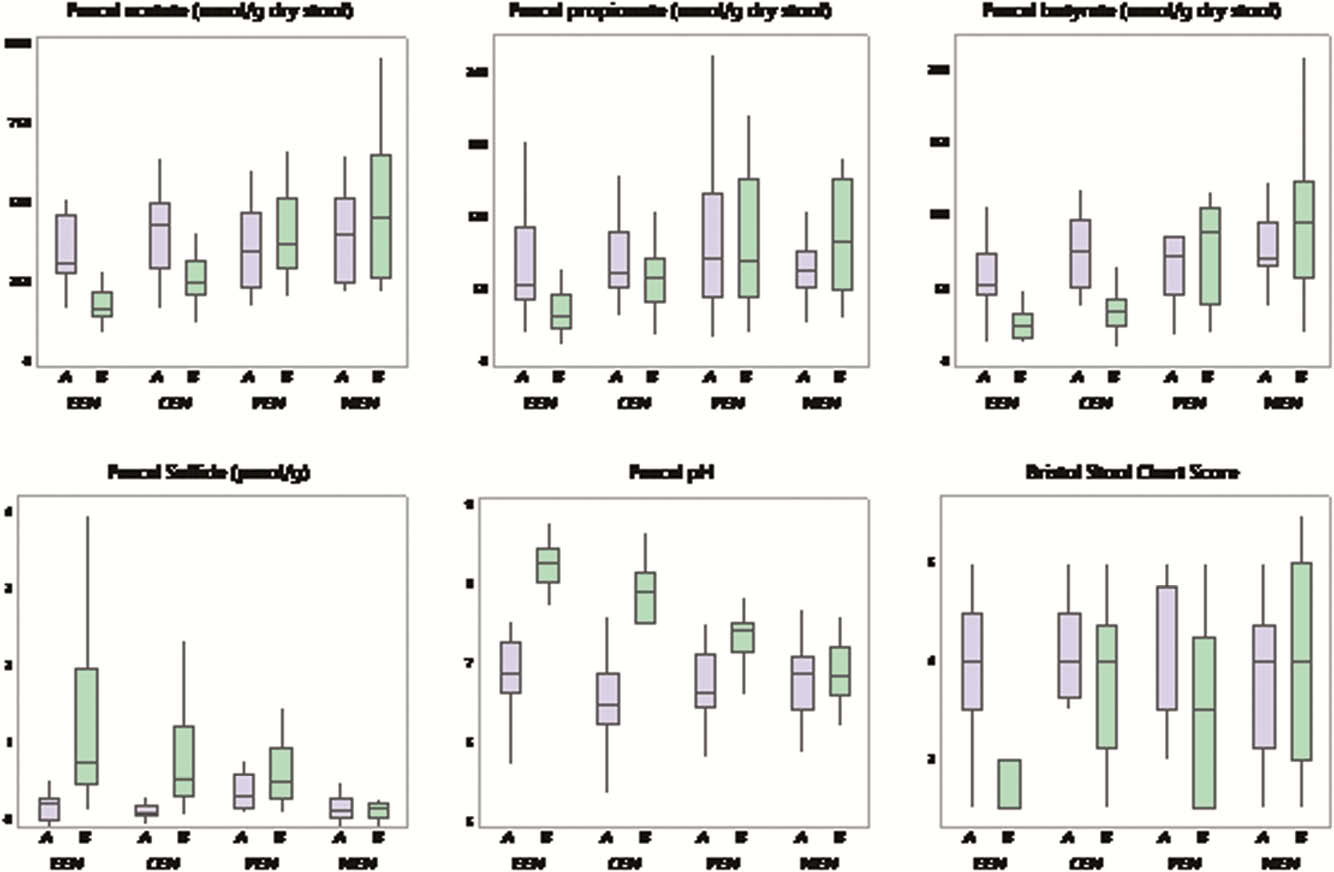DOP02 The dose-dependent effect of enteral nutrition on faecal microbial metabolites of healthy volunteers
V. Svolos1, K. Gkikas1, V. Rizou1, E. Christina1, P. Kapranos1, J. Kleingunnewiek1, J.P. Seenan2, J. Macdonald2, D.R. Gaya3, R. Hansen4, R.K. Russell4, K. Gerasimidis1
1Department of Human Nutrition, School of Medicine, College of Medical, Veterinary and Life Sciences, University of Glasgow, Glasgow, UK, 2Department of Gastroenterology, Queen Elizabeth University Hospital, Glasgow, UK, 3Department of Gastroenterology, Glasgow Royal Infirmary, Glasgow, UK, 4Department of Paediatric Gastroenterology, Hepatology and Nutrition, Royal Hospital for Children, Glasgow, UK
Background
Treatment with exclusive enteral nutrition (EEN) offers a nutritional therapy paradigm in Crohn’s disease, with the extensive modulation of gut microbiome being its proposed mechanism of action (1). Recent studies propose variable clinical efficacy for 85% EN (Cheat EN/CEN), 50% EN (Partial EN/PEN) and 20% EN (maintenance EN/MEN), and a dose-dependent effect of EN use in CD (2–5). Therefore, this study aims to investigate the dose-dependent effect of 100%, 85%, 50%, and 20% EN on faecal microbial metabolites; and to investigate if this effect can be used as a compliance marker for EEN.
Methods
Healthy adults followed EEN, CEN, PEN or MEN diet for 7 days. Fresh faecal samples were collected before and after each dietary intervention Dietary assessment was performed throughout the intervention using estimated weight food diaries. Faecal pH, water content, Bristol Stool Chart Score, short-chain fatty acids and hydrogen sulphide were measured.
Results
A total of 122 faecal samples were collected from 61 subjects. The Mean(SEM) EN intake for the four groups was EEN: 100(0), CEN: 85.6(0.5), PEN: 50.1(0.4), MEN: 19.9(0.2) % of total energy intake. The baseline levels of all faecal sample measures were no different between the four groups. Faecal water content, propionic acid and Bristol Stool Chart Score significantly decreased only during EEN (all p≤0.03). Faecal pH significantly increased during EEN, CEN and PEN (all

Conclusion
EEN extensively modulates faecal microbial metabolites and CEN induces similar effects. PEN induces variable effects and further analysis should investigate if variation in responses reflects differences in the non-EN food intake of the participants (50%). MEN had no effect on faecal microbial metabolites. Further analysis including high-throughput deep sequencing techniques will provide additional information about the dose-dependent effect of EN regimen on gut microbiome composition.
References
1. Quince
2. Logan
3. Gupta
4. Duncan
5. Lee


